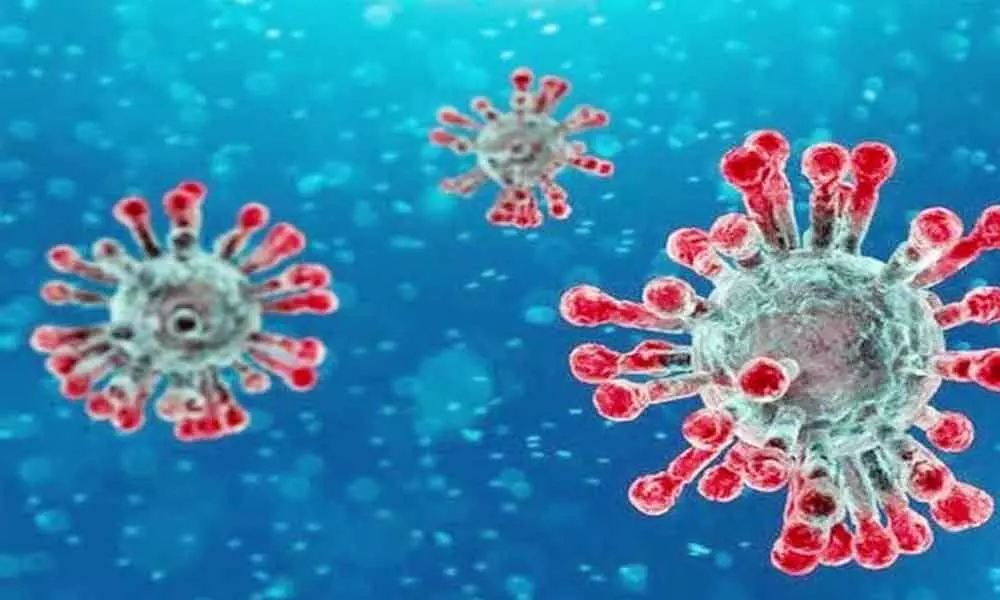Link between smoking, vegetarianism, Covid not fully understood

Link between smoking, vegetarianism, Covid not fully understood
A pan-India CSIR survey suggests that smoking and a vegetarian diet may provide protection against Covid-19, but there is no cause for either group to celebrate with scientists as well authors of the study cautioning that this is an observation and requires further research
A pan-India CSIR survey suggests that smoking and a vegetarian diet may provide protection against Covid-19, but there is no cause for either group to celebrate with scientists as well authors of the study cautioning that this is an observation and requires further research.
Smoking is bad for health. Period. And the link between vegetarianism, smoking and less Covid-19 sero-positivity is only a reported association, stressed Anurag Agarwal, director of the Council of Scientific and Industrial Research-Institute of Genomics and Integrated Biology (CSIR-IGIB) and one of the authors of the survey, Sero-positivity means a positive result for antibodies in a blood test.
The CSIR paper, yet to be peer-reviewed or published, also cites two studies from France and similar reports from Italy, New York and China, which reported lower infection rates among smokers. "There is some such data elsewhere for smoking. There are many (studies) that have found the opposite too. As I said this is an association. Smokers and those with chronic obstructive pulmonary disease (COPD) are at greater risk of death. We do not advocate smoking," Agarwal told PTI.
"Most importantly, low sero-positivity can be due to lower production or faster loss of antibodies also. The topic needs further study," he clarified. The CSIR survey, reported earlier this week, tracked about 10,000 of its employees on the prevalence of Covid-19, and found that nearly 10 per cent of the staff had antibodies. The study also found that smoking and vegetarianism are associated with lower chances of contracting the virus. It did not go into scientific details of why and how beyond reporting the observations.
"Use of private transport, lower-exposure occupations, smoking, vegetarianism and 'A' or 'O' blood groups appeared to be protective, using sero-positivity as a surrogate for infection," the authors of the pan-India survey said. For its study, CSIR took samples of 10,427 adult individuals working in its laboratories or institutions and their family members, based on voluntary participation, to assess the presence of antibodies against SARS-CoV-2, the virus that causes Covid-19.
The study, piloted by CSIR-IGIB, Delhi, found that 1,058 (10.14 per cent) of the 10,427 had antibodies against SARS-CoV-2. The study did not specify how many of these are smokers or vegetarians. Agarwal said the study suggests that declining infections in India by October end last year may be linked to sub-community level immunity. "Most importantly, low sero-positivity can be due to lower production or faster loss of antibodies also. The topic needs further study," he added. The key takeaway from the study, Agarwal said, is to be cautious since the disease spreads very fast and easily, and there is some optimism that the worst is behind us. He added that the antibody stability for six months found in the study is a good sign.
Reacting to the conclusions drawn from the survey, immunologist Satyajit Rath noted that the research paper treats sero-positivity, or the presence of antibodies, as a surrogate for exposure to the virus, and sero-negativity as an evidence of protection against the pathogen conferred by smoking, vegetarianism, and other factors. "Nobody would interpret sero-negativity as evidence of protection, but only as lack of exposure," Rath told PTI.
Classically, sero-positivity is interpreted as evidence of prior exposure, not as evidence of susceptibility, he explained. "All interpretations about so-called roles for blood groups, smoking, and vegetarianism appear to be based on this incorrect interpretation," Rath, from Delhi's National Institute of Immunology (NII), added. A review of 174 cohort studies in August revealed an unexpected low number of current smokers among subjects tested for SARS-CoV-2 infections.
The prevalence of current smokers suffering from symptomatic Covid-19was frequently significantly lower than in the general population, it said. Cohort study is a type of panel study where the individuals in the panel share a common characteristic. The World Health Organisation (WHO) associates smoking with an adverse progression of Covid-19 and has in the past called on people to quit smoking. There are also many published studies which suggest that quitting smoking might reduce the risk of a severe coronavirus infection.
According to a study published in the journal Developmental Cell in May, cigarette smoke spurs the lungs to make more of the receptor protein which the novel coronavirus uses to enter human cells. The findings may explain why smokers appear to be particularly vulnerable to severe Covid-19, the researchers of the study said. Another study published in the journal Cell Stem Cell in November, pointed out that smoking cigarettes causes more severe infection by the novel coronavirus in the airways of the lungs. "In the absence of specifically designed studies, any hypothesis on the effect of smoking/nicotine uptake on symptomatic Covid-19 remains speculative," according to an editorial published in the journal 'Tobacco Induced Diseases'.
While there isn't much scientific literature on the effect of vegetarian diet on chances of getting ill with Covid-19, the CSIR study does suggest that vegetarianism is associated with less Covid-19 sero-positivity. K Srinath Reddy, president of the Public Health Foundation of India, told PTI in an earlier interview that there is no proof at the moment that vegetarians are protected against Covid-19. However, he said people who take a lot of fruits and vegetables as part of their natural diet have better innate immunity, and might be able to fight the infection much better.
According to immunologist Vineeta Bal, while the CSIR study provides useful data, there are some limitations to it. "The study is family based -- transmission within the family is an important parameter in such a situation and data provides no information about it. Family as a unit is also important while analysing parameters such as smoking, food habits etc," Bal, visiting professor at Pune's Indian Institute of Science Education and Research, told PTI.
"Samples are also primarily city based. Male-female ratios don't reflect the population distribution. These concerns are important from a public health perspective as recommendations for issuing guidelines about food, smoking etc. should have a more sound and wider basis," she said. She also noted that the CSIR study is an observational one and such studies can only highlight associations. "More focused studies will be needed to strengthen or refute observations reported in this study. In any case, I think it is premature to derive public guidelines out of this study for people to make an informed choice," Bal said.










